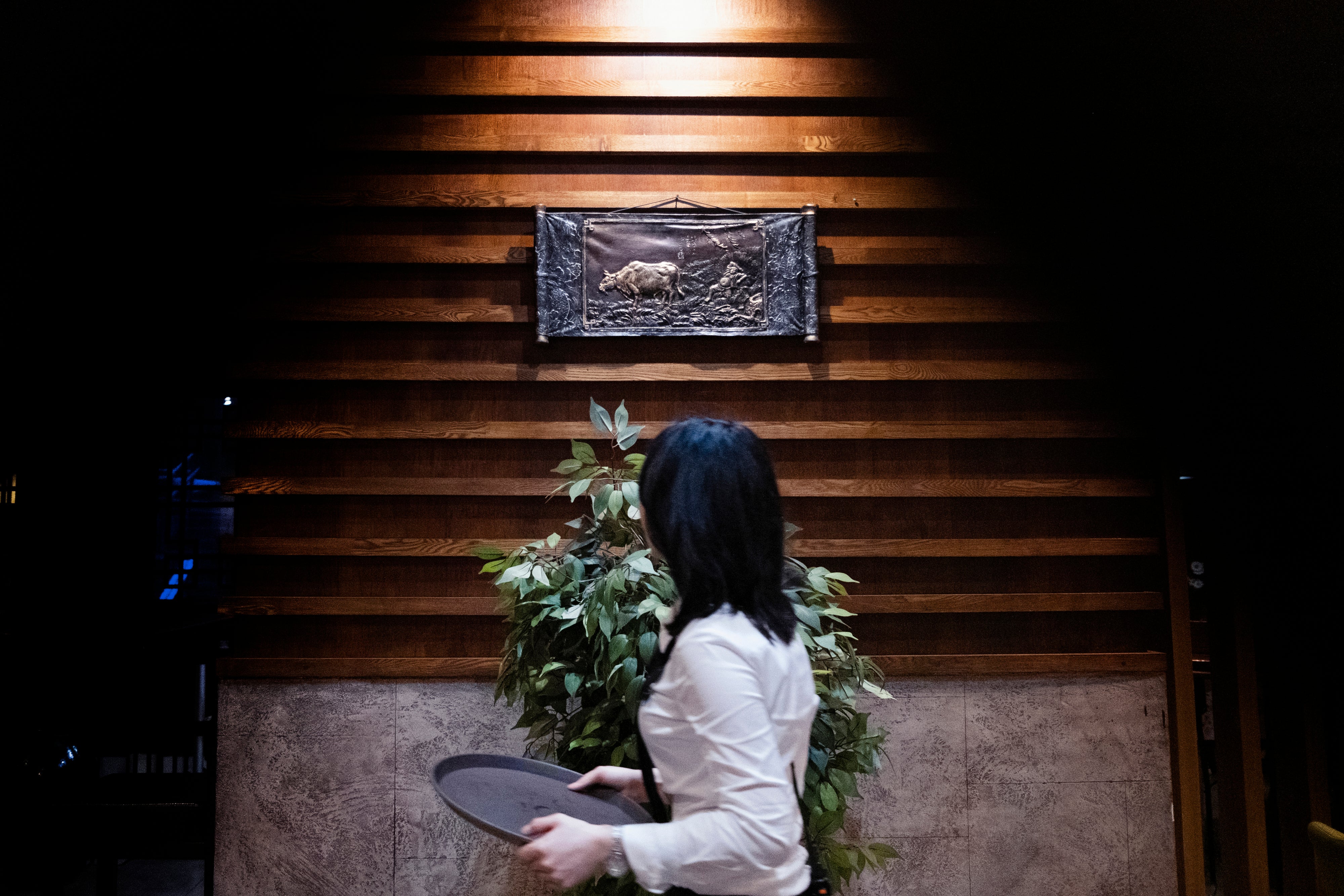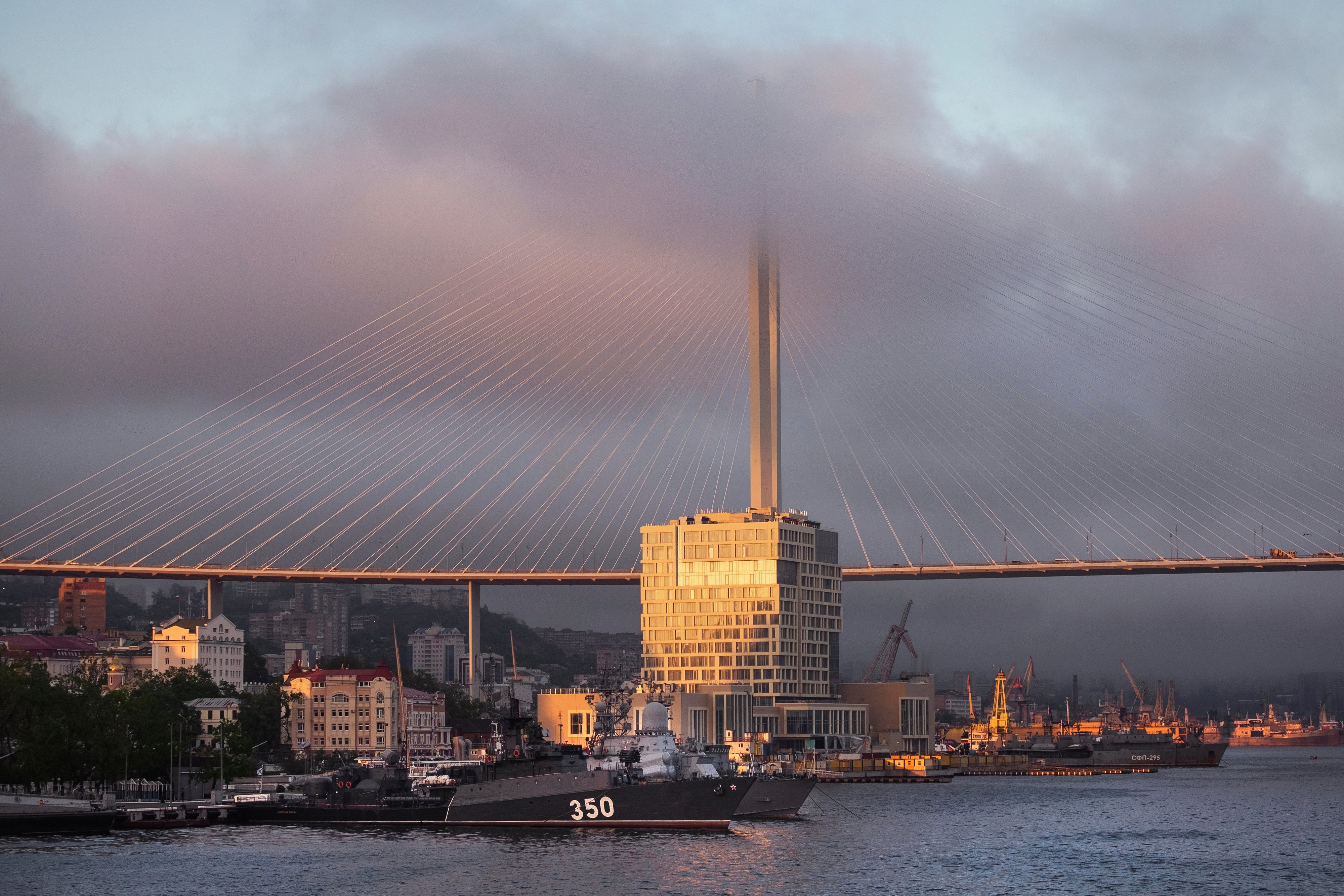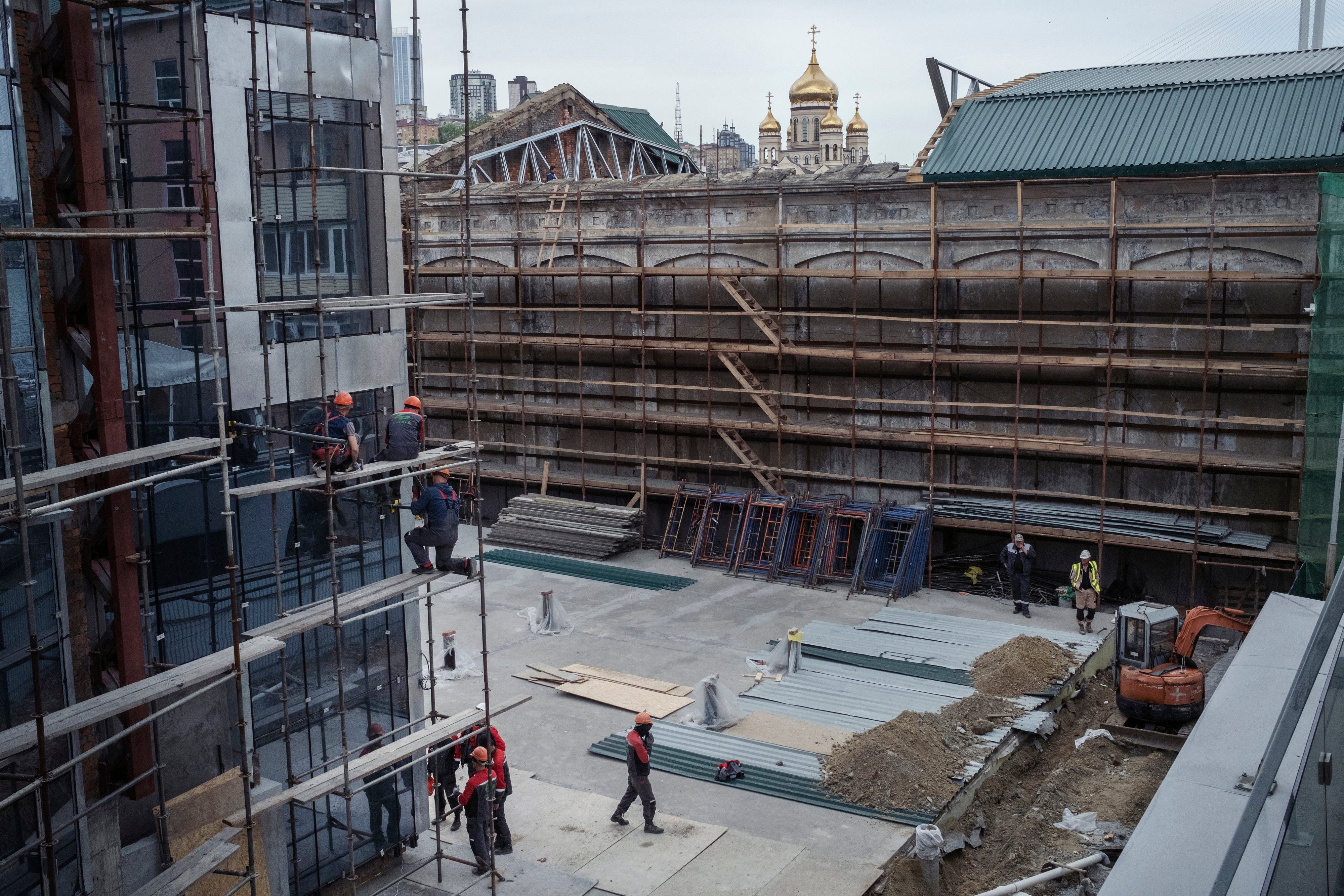The North Korean workers in east Russia making money for themselves and Pyongyang
The amount you pay is set by North Korea, anything you earn over, you keep, therefore many North Koreans can make far more money in east Russia, writes Isabelle Khurshudyan

Your support helps us to tell the story
From reproductive rights to climate change to Big Tech, The Independent is on the ground when the story is developing. Whether it's investigating the financials of Elon Musk's pro-Trump PAC or producing our latest documentary, 'The A Word', which shines a light on the American women fighting for reproductive rights, we know how important it is to parse out the facts from the messaging.
At such a critical moment in US history, we need reporters on the ground. Your donation allows us to keep sending journalists to speak to both sides of the story.
The Independent is trusted by Americans across the entire political spectrum. And unlike many other quality news outlets, we choose not to lock Americans out of our reporting and analysis with paywalls. We believe quality journalism should be available to everyone, paid for by those who can afford it.
Your support makes all the difference.On a popular advertising site in Russia's far eastern city of Vladivostok, there's a separate page with listings devoted to North Korean workers available for home construction jobs.
The contact information on one post led to a North Korean man who tells The Washington Post he has worked in Russia for “many years”. He said he can earn significantly more money here than in North Korea, even as about half of his earnings are earmarked for Kim Jong-un's regime in Pyongyang.
“The amount you pay is set by the North Korean government,” he says. “If you earn a lot, you can keep a lot yourself. If you earn little, you can keep only a little yourself.”
More than a year after UN Security Council sanctions banned countries from hosting North Korea's regime-directed workforce, North Korean workers remain in Vladivostok, a port city of about 600,000 near the Russia-North Korea border. It’s one of the main footholds in the world for North Koreans to work outside the country and provide Pyongyang with a stream of foreign currency that helps back Kim and his ruling party.
Several Russian construction managers in Vladivostok say that they continue to work with North Koreans, though there are fewer of them in the city since the UN sanctions took effect in December 2019. The coronavirus pandemic shuttered the border between the countries a month later.
Russia has been critical of the sanctions, but said it would adhere to them. Moscow acknowledged last year that it missed the UN deadline to repatriate North Korean workers due to what Foreign Ministry spokeswoman Maria Zakharova said were “objective difficulties” from limited transportation options.
Turning something of a blind eye to the North Korean workers still in the country is a way for Moscow to maintain its outreach to Pyongyang
The North Koreans are in-demand labourers, the construction managers say, because they are cheap but with a reputation for quality work. Though they tend to be private and limit their interactions with people outside of the job, they also don't fear operating in the open by posting ads for renovation gigs on a Russian version of Craigslist.
The influx of foreign cash from North Koreans working abroad is vital as the country last year faced its worst economic slump in more than two decades, analysts say. There were reports of acute power cuts and factory closures, and Kim called the country's food situation “tense” last month, amid mounting reports of shortages.
The United States has stated it believed the North Korean government was earning more than $500m (£367m) a year, before the UN sanctions, from nearly 100,000 workers abroad, of which some 50,000 were in China and 30,000 in Russia.
Ms Zakharova told reporters in January 2020 that around 1,000 North Korean workers remained in Russia but they “are in reality no longer workers since their work permits have expired and they don't receive income in Russia”.
In a March 2020 report submitted by the Russian mission to the United Nations, the country said 511 North Korean nationals who previously held work permits remained because “in view of the novel coronavirus disease pandemic, Pyongyang has unilaterally halted transport links” with other countries.
The Russian Foreign Ministry did not respond to a request for comment on the current status of the more-than 500 North Koreans who remained in Russia after the border closure.

Russia issued more than 16,000 tourist visas and more than 10,000 student visas to North Koreans in 2019. Fewer than 5,000 North Koreans were granted a tourist or student visa in 2018, according to Russian Interior Ministry statistics. Analysts say the surge suggested North Koreans were continuing to work in Russia but illegally.
Artyom Lukin, an international relations scholar at Vladivostok's Far Eastern Federal University, says Russia has a stake in propping up Kim's rule. If the Koreas were ever reunified, it would mean a key US ally on Russia's border, Lukin says.
Turning something of a blind eye to the North Korean workers still in the country, he adds, is a way for Moscow to maintain its outreach to Pyongyang.
“It's an open secret that many North Koreans continue to work,” Lukin says. “But a few years ago, if you walked the streets of Vladivostok, you would see quite a lot of North Koreans. Now, I do see them from time to time, but not as many as before.”
When contacted by The Post, one North Korean man who posted an online ad to work construction, says he was in Russia on a student visa. The number of North Korean migrants to Russia dropped to fewer than 4,000 last year due to coronavirus travel restrictions, according to Interior Ministry statistics. About 2,600 came on a student visa.
Being selected to work abroad is a prestigious and rare opportunity for North Koreans to boost the lives of their families back home. But working conditions are notoriously poor, experts state, with potentially long hours, low pay and poor safety. Now that they are working undocumented, it’s even harder for external labour watchers to reach them.
The coronavirus risks make their situation even more precarious because they are unlikely to have access to personal protective equipment, let alone vaccines.
Svetlana, a Russian hostess at a Korean restaurant in Vladivostok, says the North Korean servers there work long hours seven days a week. But she assumed the young women pocket a decent portion of their pay because she's observed them shopping for expensive cosmetics and clothing.

Svetlana declined to provide her surname because she feared retribution from her employer. Approached by The Post, the North Korean servers said they couldn't comment without the permission of their North Korean manager, who refused. Svetlana says the servers are typically not permitted to communicate with anyone outside of the restaurant staff.
Svetlana says the women often ask her about the differences between their cultures. For example, she said they were “shocked” that she lives with her boyfriend.
“I'm interested in how they lived there and what the rules were or weren't,” Svetlana said. “But when I ask them, they just say, ‘Everything is good.’ So despite the fact that we're in Russia and they should feel really safe here, there's still no conversation. They're really private.”
Kang Dong-wan, a North Korea expert at Dong-A University in Busan, South Korea, travelled to Vladivostok in late December 2019 to check what happened to North Korean workers after the repatriation deadline.
“There were North Koreans flying into Russia from North Korea,” Kang says. “I saw them myself.”
“North Korea and Russia have built a strong relationship over many years,” he adds. “It is hard for Russia to say no when North Korea wants to send workers there.”
Kim reported from Seoul.
© The Washington Post
Join our commenting forum
Join thought-provoking conversations, follow other Independent readers and see their replies
Comments